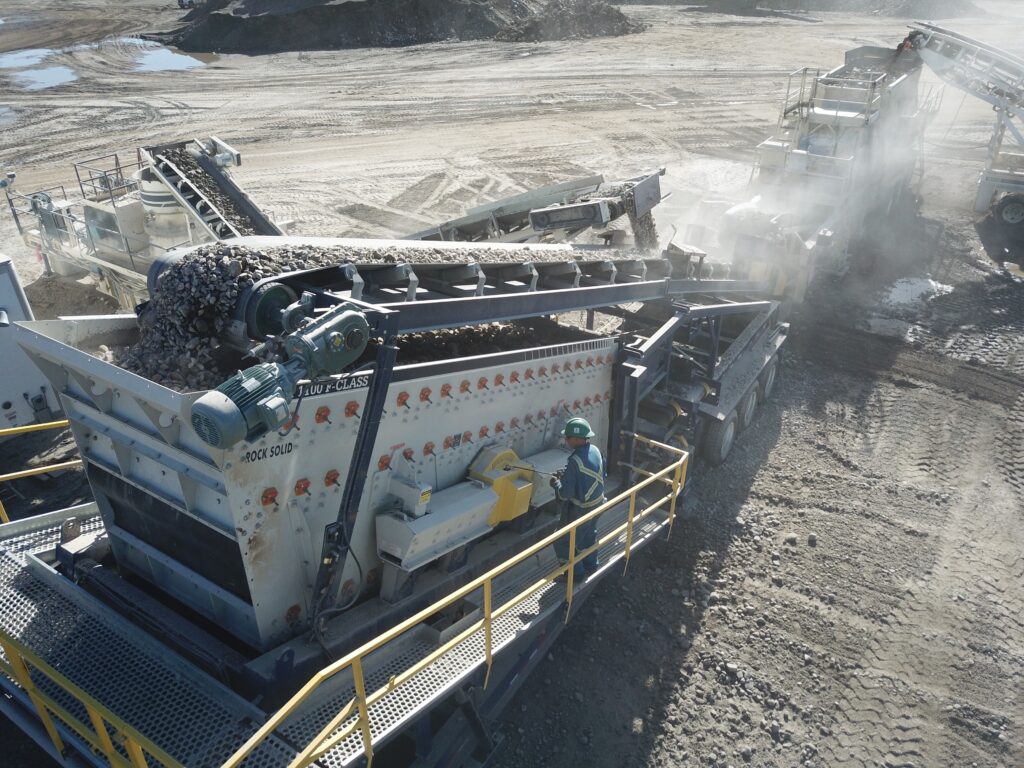
The Niagara F-Class Portable Plant offers the ideal solution for challenging screening applications requiring consistent performance, load independence and minimal vibration transmission into the chassis.
Why Use an Inclined Machine on a Portable Plant?
A circular motion inclined vibrating screen uses gravity to help move material down the screen deck, reducing pegging as well as energy and horsepower requirements. There are differences in the rate of material travel between an inclined and horizontal machine. At 45 to 50 feet per minute (and at a specific tonnage) a horizontal screen will experience diminished capacity due to a greater bed depth. Alternatively, on a 20-degree incline, and at 70 to 75 feet per minute travel rate, an inclined screen will deliver up to 25% more capacity than a linear-stroke horizontal machine.
• Double eccentric shaft assembly maintains constant g-force during start-up, shut-down, and extreme operating conditions including overloading and surging.
• A custom-built chassis holds the vibrating screen and periphery equipment, such as crushers or conveyers, to customize the plant for each operation.
• The portable plant’s hydraulic system allows setup in less than 30 minutes as it positions the screen at an optimal angle of 20 degrees.
• The vibrating screen can be lowered in less than 5 minutes for easy screen media change-outs.
• Dynamically balanced design eliminates dynamic loads into the chassis to improve safety.
• Side-tensioned F-Class vibrating screens incorporate the Ty-Rail™ quick-tensioning system, which cuts screen change-out times in half. The patented system decreases downtime and improves productivity.
• Scalping
• Dedusting
• Classifying (wet or dry)
Haver & Boecker Niagara uses its innovative and shared technologies to effectively meet the needs of customers around the world.
Our global network of experience allows us to solve the most unique problems.
Florian Festge, Haver & Boecker Managing Partner